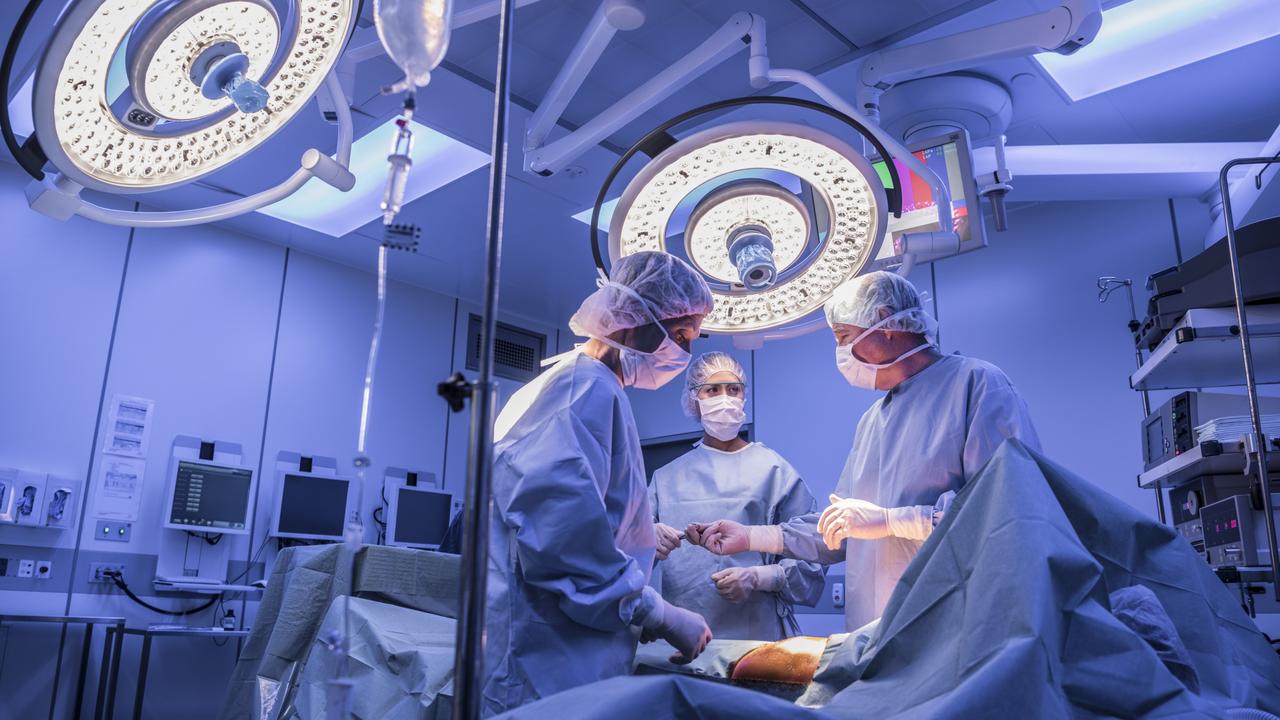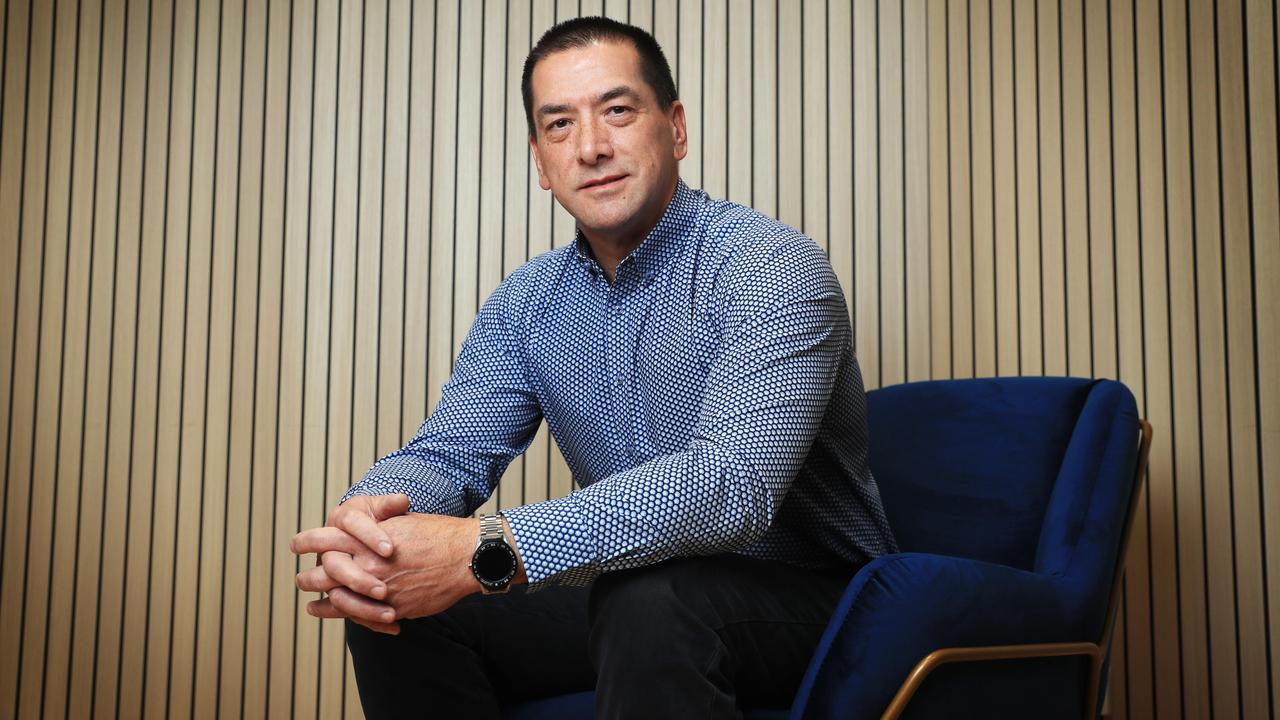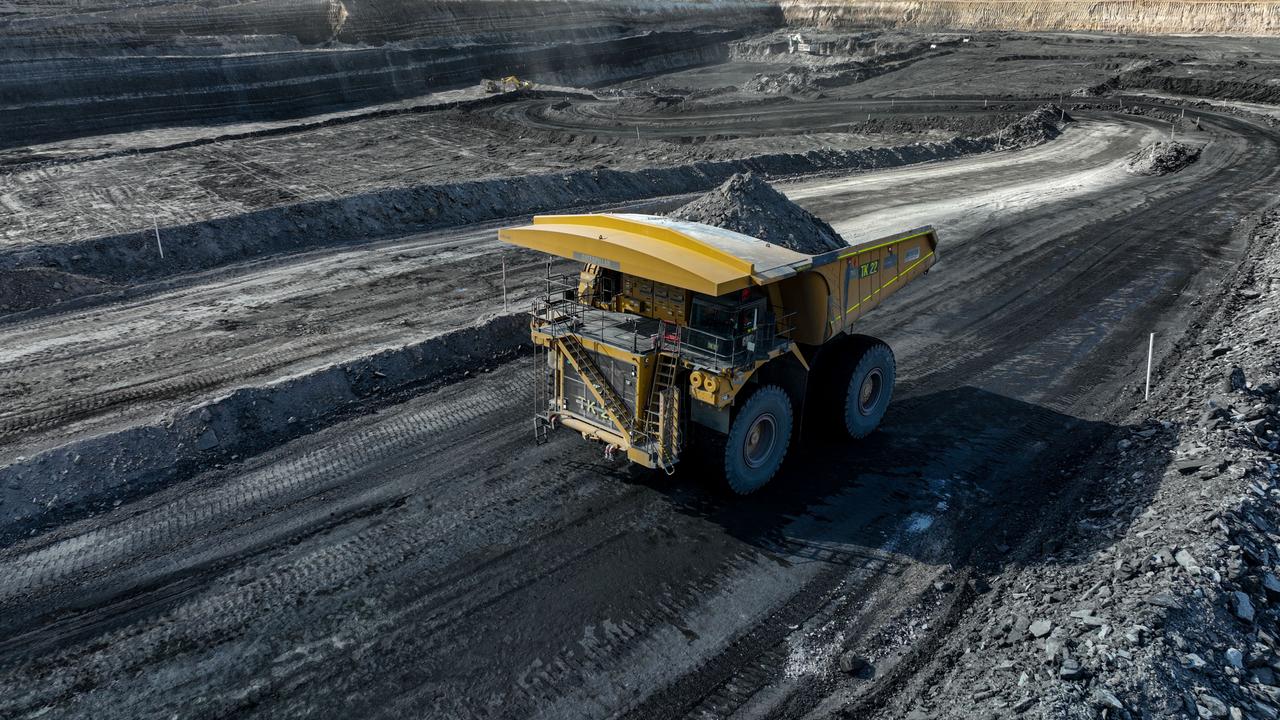Behind KKR’s blockbuster $20bn move to control Ramsay Health Care’s private hospitals
Wall Street’s cashed up private equity giant has learnt lessons from the past, giving Ramsay Health Care little room to move.

Business
Don't miss out on the headlines from Business. Followed categories will be added to My News.
After its audacious multi-billion move on Coles more than 15 years ago, Wall Street’s cashed-up private equity raider KKR is making another blockbuster tilt in Australia.
The target this time is Australia’s largest private hospital operator Ramsay Health Care and at $20bn represents the biggest bet yet for KKR here.
Unlike the drawn out Coles deal which saw KKR eventually lose out to Wesfarmers in the massive deal, the private equity major has used shock and awe to go big and go early.
It has also played the politics better by bringing in $56bn healthcare-focused industry fund HESTA as a key consortium partner.
While KKR’s co-founders George Roberts and Henry Kravis retired from the firm last year, the bid broke some of the habits of a string of recent deals of late.
Instead of being lobbed cold to the Ramsay board over the weekend, KKR has been holding talks with the hospital operator’s board for months. These discussions and very limited due diligence gave the private equity fund the confidence to table its big number.
With an indicative $88 a share offer, it makes it hard for long-serving Ramsay chairman Michael Siddle to ignore. (The KKR camp point to another $3.60 worth of franking credits that represents $91.60 in total value. The closest that Ramsay has traded to that price is $83.66 in 2016. The pre-bid price for Ramsay was just over $64 a share and the past year Ramsay has been range bound and failed to trade over $74 a share. It was this number and Siddle’s comfort that funding was in place to give KKR the green light to move to the next stage of due diligence.

The Australian’s DataRoom column foreshadowed in December that KKR was quietly working behind the scenes on a major buyout after raising more than $21bn for its fourth Asian fund this year with Ramsay in the frame.
For KKR and HESTA, Ramsay represents a vehicle for long-term capital. Among the talks with the board KKR has pledged to continue to invest in the business expanding existing facilities while building more in Australia and around the world. They don’t view Ramsay as a broken business, rather they view it as a quality asset that could thrive with further investment.
KKR is playing the demographics game with populations ageing across Australia and Europe which means that hospital use rates will grow long-term. It also has healthcare experience, owning Australian cancer care operator GenesisCare and French healthcare network Elsan.
One area that KKR would be eyeing off is unlocking the more than $6bn in unrealised value in Ramsay’s freehold property portfolio. Remember Ramsay operates more than 500 hospitals and primary care clinics across 10 countries, including Australia, France and the UK.
Also expect KKR to use Ramsay’s near 40 per cent share of the Australian private hospital market to drive negotiations with suppliers and device manufacturers.
KKR has been quietly putting in the groundwork, including winning over Ramsay Health Care’s largest single shareholder charitable fund the Paul Ramsay Foundation that is sitting on an 18.8 per cent stake. It is understood KKR has invited the Foundation to transfer some of its holding directly into the bidding consortium.
The Paul Ramsay Foundation says it is a matter for the hospital operator’s board to assess the merits of the bid but if an offer materialise along the lines canvassed by KKR, the foundation “would support such an offer being put to shareholders”.
HOT COAL
Paul Flynn, the chief executive of coal miner Whitehaven has never seen a higher level interest in the coal miner among fund managers and other big investors. After spending recent years in the wilderness as coal prices slumped and green investing issues dominated, suddenly the thermal coal miner is hot property.
With the company flush with cash, there are a record number of big investors now crowding Whitehaven’s share register just as coal prices continue to push record highs on the back of Russia’s invasion of Ukraine.
Flynn acknowledges the reason for the price surge particularly around thermal coal is borne out of “an unfortunate set of events” and no one is “high-fiving” the reason why Russian supply is being shunned from world markets.
However it continues the unescapable theme that Australia as an energy and commodity exporter to the world will be a net beneficiary of the crisis gripping eastern Europe.
Flynn was speaking as Whitehaven secured a record price for thermal coal during the March quarter, averaging $US229 a tonne compared to $US157 a tonne in the December quarter. Thermal makes up the bulk of Whitehaven’s sales, although prices for steel making ingredient met coal continues to surge, coming in at $US244 a tonne from $US178 a tonne in the previous quarter.

Flynn expects high prices to remain as his global customers, particularly in Korea and Japan, start to exclude Russian coal from new formal tenders. While no one is turning off Russian coal under existing contracts, the new contracts that are now rolling through the system are being struck without Russian supply.
“You can’t move 110m tonnes out of seaborne trade without seeing some sort of impact…it’s a very, very tight market,” Flynn says.
In addition, big customers are asking for coal deliveries to be brought forward and some are taking advantage of additional tonnage clauses in contracts to make sure they have physical supply on hand.
With the miner paying down debt and $161m in a net cash positive position, shareholders can expect more capital return when it hands down its annual results in August. This is on top of the $400m share buyback unveiled in February. The turnaround in the cash position is remarkable with the miner sitting on net debt of more than $800m last June.
Whitehaven’s organic growth is limited in its expansion projects to its existing mines with the big ticket item being the development of the shallow end of its Narrabri underground mine in NSW expected to deliver a step-up in output.
While the company is in the best financial health it has been for years, a labour shortage is preventing it from ramping up existing operations. He talks of a “merry-go-round” of people going from one mining company to another.

“It’s been extraordinary to try and get the people we need. And we’ve done really well I think, in the quarter despite the Covid absenteeism and to anchor our people”.
Whitehaven is reporting vacancies of between 5 per cent to 10 per cent of its targeted workforce. Specialist or experienced roles are among the toughest to fill including underground miners, trades, mining engineers.
Fuel costs remain the other headache, with Whitehaven burning about 140 million litres of diesel annually across its excavators and trucks. Price rises here represent around $70m in annualised cost hikes.
With Whitehavens shares up 250 per cent over the past year – up another 2.8 per cent to $4.79 on Wednesday – Flynn still maintains the company is “undervalued”, with it attracting a bigger premium five years ago when coal was going for less. He points that the share price has increased as the cash generation of the business has increased but is not fully reflecting the boom time position.
johnstone@theaustralian.com.au









